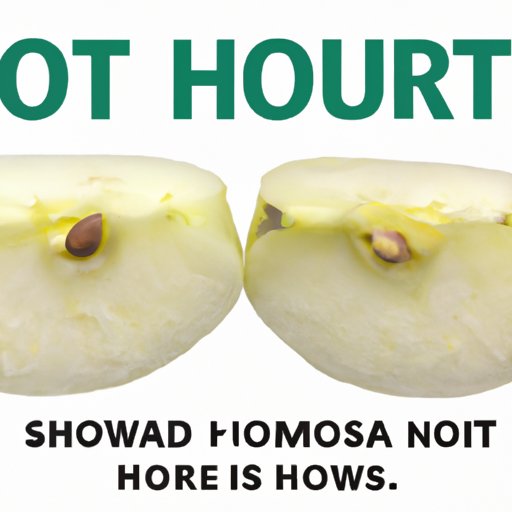
I. Introduction
Almost everyone has experienced a painful mouth sore at some point in their lives. These small, round sores can form inside the mouth or on the lips, making speaking, eating, and drinking uncomfortable or even unbearable. While most mouth sores go away on their own, some can persist or even worsen over time, necessitating professional care.
This article aims to provide you with a comprehensive guide to understanding, preventing, and treating mouth sores.
II. Identifying the Root Cause of Mouth Sores
Mouth sores can have various causes, but identifying the root cause is crucial for effective treatment. Here are some possible causes:
A. Physical injury
Accidental bites, burns due to hot foods or beverages, or sports injuries can all result in mouth sores.
B. Poor oral hygiene
Plaque buildup, improper brushing, and flossing can all damage the delicate tissues of the mouth.
C. Underlying health conditions
Certain autoimmune diseases, nutritional deficiencies, and viral infections can all cause mouth sores.
D. Stress levels
Chronic stress can trigger mouth sores in some people.
E. Importance of identifying the root cause
Identifying the root cause of your mouth sores can help you avoid triggering them in the future.
III. Discussing Ways to Prevent Mouth Sores
While some causes of mouth sores may be unavoidable, here are some preventative measures you can take:
A. Proper oral hygiene
Brushing twice a day with a soft-bristled brush, flossing, and rinsing with a non-alcoholic mouthwash can all help keep your mouth healthy and free of harmful bacteria that can cause mouth sores.
B. Avoiding spicy or acidic foods
Spicy or acidic foods can irritate the sensitive tissues of the mouth, leading to mouth sores.
C. Paying attention to stress levels
Incorporating stress-reduction techniques like meditation, exercise, or therapy can help prevent recurring mouth sores triggered by stress.
D. Importance of prevention
Prevention is key to avoiding painful and disruptive mouth sores, and taking steps to reduce the chances of their occurrence is a proactive approach to oral health.
IV. Suggesting Natural Remedies
Many natural remedies exist for treating mild to moderate mouth sores.
A. Honey
Honey is a natural antiseptic that can help keep your mouth clean and promote the healing process. Applying a small amount of honey directly to the affected area may reduce inflammation and pain.
B. Saltwater rinses
Mixing a teaspoon of salt in a warm glass of water to create a saltwater rinse can help reduce pain and inflammation.
C. Aloe vera
Aloe vera can provide natural pain relief and reduce inflammation when applied directly to the sore.
D. Turmeric
Turmeric has potent anti-inflammatory properties that can help reduce pain and swelling in the mouth. Adding a teaspoon of turmeric powder to warm water and swishing it around your mouth before spitting it out can help speed up the healing process.
E. Benefits of natural remedies
Natural remedies are available, affordable, and often widely used to treat mouth sores. They can be just as effective as store-bought treatments in some cases, and offer the added benefit of being free of harsh chemicals.
V. Recommending Store-Bought Treatments
Some mouth sores may require store-bought treatments:
A. Numbing gels
Numbing gels like benzocaine can provide pain relief for mouth sores by temporarily numbing the affected area.
B. Antiviral creams
Antiviral creams like acyclovir can help speed up the healing process for mouth sores caused by a viral infection.
C. Overview of over-the-counter treatments
Over-the-counter treatments are widely available and often effective, but it is important to consult with a health professional for specific recommendations tailored to your individual needs.
VI. Highlighting Lifestyle Changes
Lifestyle changes can also help with the treatment of mouth sores:
A. Quitting smoking
Smoking can further irritate mouth sores, and quitting can expedite the healing process.
B. Altering your diet
While there is no fixed diet for the treatment of mouth sores, avoiding certain foods such as citrus, spicy, or fried foods can make the healing process less painful.
C. Reducing stress levels
Reducing stress levels via exercise, therapy, or other stress-reduction techniques can prevent recurring mouth sores triggered by stress.
D. Importance of lifestyle changes
Lifestyle changes can be crucial in the prevention and treatment of mouth sores, along with providing numerous other health benefits.
VII. Offering Professional Advice
While home remedies and over-the-counter treatments can be effective in treating mild mouth sores, it is important to seek professional care for severe or persistent sores.
A. When to seek professional care
Symptoms like persistent sores, extreme pain, or difficulty swallowing may require immediate professional care.
B. Making an appointment with a dentist or doctor
Dentists or doctors may recommend various medications or procedures for the treatment of recurrent or severe mouth sores.
C. Personalized treatment plan
A health professional can suggest a tailored treatment plan that addresses the underlying cause of the mouth sores and promotes healing.
VIII. Conclusion
Mouth sores can be painful, disruptive, and even dangerous if left untreated. But with proper care and attention, you can prevent their occurrence and ensure fast healing. Taking steps such as proper oral hygiene, reducing stress, and incorporating natural remedies can all contribute to preventing, treating, and healing mouth sores. And ultimately, if you develop recurring or severe mouth sores, it is important to seek professional advice and care.
A. Importance of taking care of mouth sores
Taking care of your mouth sores can prevent further damage to your oral health and overall well-being.
B. Recap of key points
Key preventative measures for mouth sores include proper oral hygiene, stress management, and lifestyle changes such as quitting smoking. Home remedies and over-the-counter treatments can also be effective in treating mild to moderate mouth sores.
C. Encouragement to seek treatment if necessary.
Despite the effectiveness of preventative care, it is always important to seek professional car for severe or persistent mouth sores to prevent further discomfort or complications.




